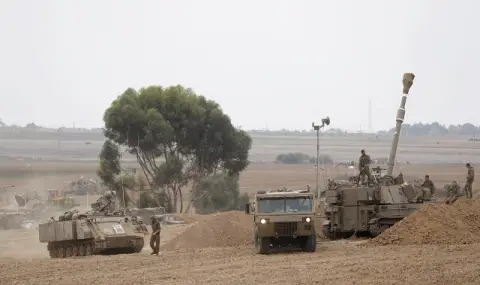An Israeli-approved truce with Hezbollah went into effect on Wednesday . It is not only the Shia militia that has been weakened. Why is the truce coming now? And why can't such a thing be achieved with Hamas soon?
This morning, an Israeli-sanctioned cease-fire with the Shiite militia Hezbollah in Lebanon came into effect. After a year of war, Hezbollah has been significantly weakened, Israeli Prime Minister Benjamin Netanyahu explained. However, according to Middle East expert Fabian Hintz, who was interviewed by German public broadcaster ZDF, this is not the only reason for the truce.
And the Israeli army is exhausted
Israel is agreeing right now because many of the reservists in the army have been at the front for a very long time and exhaustion is already felt on both sides, Hintz explained to the German media. Moreover, the military operation in Lebanon has cost Israel very dearly. In a "very short time" many of Israel's goals in the war with Hezbollah were achieved, including killing the group's leaders. That is why the question already arises: what is the point of continuing this costly war?
Why did the attacks increase just before the armistice?
The fact that Israel carried out heavy attacks on Beirut shortly before the ceasefire decision was announced is a "familiar tactic", according to the Middle East expert. According to him, there are several reasons for its use. In the first place is the desire to increase the pressure, and on the other hand - to eliminate as many targets as possible before the truce comes into effect.
The same has happened in the opposite direction - Hezbollah has also stepped up its attacks on Israel in recent days. Against the background of the prospect of an end to the conflict, the Shia militia could afford to use its entire arsenal of rockets, believes Fabian Hinz. In addition, there is a propaganda element - with more heavy shelling by Hezbollah before the ceasefire, the narrative could be created that Israel was forced to call for a ceasefire because of the threat from Hezbollah. So the group can present this as a symbol of its power, at least to its supporters.
What's next for Hezbollah?
Hezbollah will probably need a very long time to return to its former military power, if at all possible, Hintz told ZDF. First, the Shia militia must try to rebuild its destroyed weapons arsenal and underground shelters. The group certainly suffers from a lack of personnel, with new commanders having to fill the places of those killed in the war, but this is also a big problem, as the high-ranking Hezbollah functionaries have been largely eliminated by Israel. According to Hintz, it will be very difficult for Hezbollah to return to its former power.
In any case, if it wants to move forward, the group needs a change in strategy, because even before the war started on Lebanese soil, it was clear that Hezbollah was not powerful enough to defeat Israel.
Is a truce with Hamas also possible?
While Lebanon still has a state structure and an army, the starting point in the Gaza Strip is quite different. This is precisely why it is so difficult to talk about such a truce with Hamas. At the same time, Hamas takes a completely different position from Israel's point of view - because of the brutal terrorist attack on October 7, 2023, when more than 1,200 people were killed.
Therefore, and from a domestic political perspective, it is much more difficult for Israeli Prime Minister Benjamin Netanyahu to reach a compromise with his governing partners to potentially end the war in Gaza and reach an agreement with Hamas.
